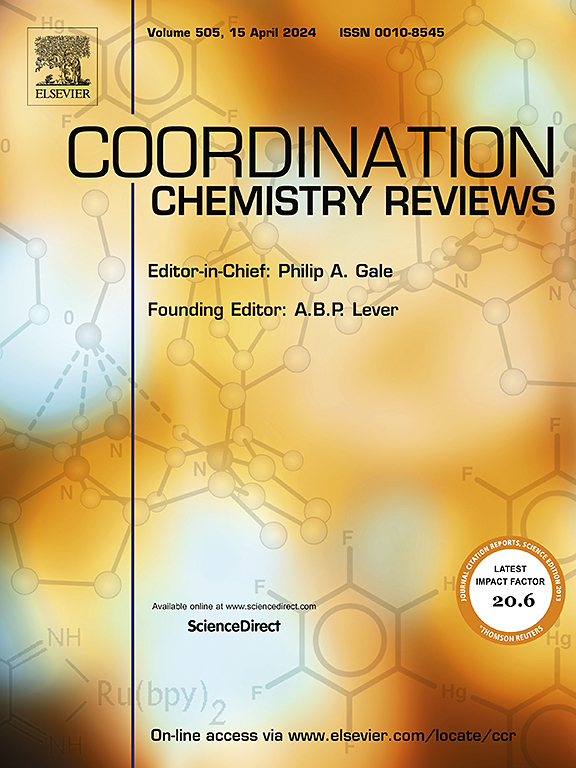Liquid biopsy for cancer immunotherapy: Biomarkers to predict and monitor response upon immune checkpoint blockade
IF 23.5
1区 化学
Q1 CHEMISTRY, INORGANIC & NUCLEAR
引用次数: 0
Abstract
Immunotherapy, particularly immune checkpoint inhibitors (ICIs), has revolutionized cancer treatment, offering durable responses in a specific subset of patients. However, the lack of reliable indicators or monitoring methods to estimate ICI efficacy remains a significant challenge. Various liquid biopsy assays have emerged as promising tools to overcome these limitations due to their non-invasive nature and ability to capture tumor heterogeneity. This review provides a systematic and comprehensive overview of clinical studies, categorizing liquid biopsy biomarkers—including ctDNA, CTCs, soluble proteins, and exosomes—based on their clinical applications and presenting specific, detailed findings from the most up-to-date research. Additionally, this review addresses the limitations of each biomarker, as highlighted by conflicting results in some clinical studies, and explores prospects for overcoming these challenges through advanced technologies and integrated approaches. By offering a detailed classification of clinical studies and actionable perspectives, this review serves as a guideline for researchers and clinicians entering the field, providing a clear framework for addressing current challenges and advancing the potential of liquid biopsy biomarkers in ICI treatment.
液体活检用于癌症免疫治疗:生物标志物预测和监测免疫检查点阻断反应
免疫疗法,特别是免疫检查点抑制剂(ICIs),已经彻底改变了癌症治疗,在特定的患者亚群中提供持久的反应。然而,缺乏可靠的指标或监测方法来评估ICI的疗效仍然是一个重大挑战。由于其非侵入性和捕获肿瘤异质性的能力,各种液体活检分析已经成为克服这些局限性的有前途的工具。本文综述了临床研究的系统和全面概述,根据其临床应用对液体活检生物标志物进行了分类,包括ctDNA、CTCs、可溶性蛋白和外泌体,并介绍了最新研究的具体、详细的发现。此外,本综述指出了每种生物标志物的局限性,因为在一些临床研究中结果相互矛盾,并探讨了通过先进技术和综合方法克服这些挑战的前景。通过提供临床研究的详细分类和可操作的观点,本综述为进入该领域的研究人员和临床医生提供了指导,为解决当前的挑战和推进液体活检生物标志物在ICI治疗中的潜力提供了明确的框架。
本文章由计算机程序翻译,如有差异,请以英文原文为准。
求助全文
约1分钟内获得全文
求助全文
来源期刊

Coordination Chemistry Reviews
化学-无机化学与核化学
CiteScore
34.30
自引率
5.30%
发文量
457
审稿时长
54 days
期刊介绍:
Coordination Chemistry Reviews offers rapid publication of review articles on current and significant topics in coordination chemistry, encompassing organometallic, supramolecular, theoretical, and bioinorganic chemistry. It also covers catalysis, materials chemistry, and metal-organic frameworks from a coordination chemistry perspective. Reviews summarize recent developments or discuss specific techniques, welcoming contributions from both established and emerging researchers.
The journal releases special issues on timely subjects, including those featuring contributions from specific regions or conferences. Occasional full-length book articles are also featured. Additionally, special volumes cover annual reviews of main group chemistry, transition metal group chemistry, and organometallic chemistry. These comprehensive reviews are vital resources for those engaged in coordination chemistry, further establishing Coordination Chemistry Reviews as a hub for insightful surveys in inorganic and physical inorganic chemistry.
 求助内容:
求助内容: 应助结果提醒方式:
应助结果提醒方式:


